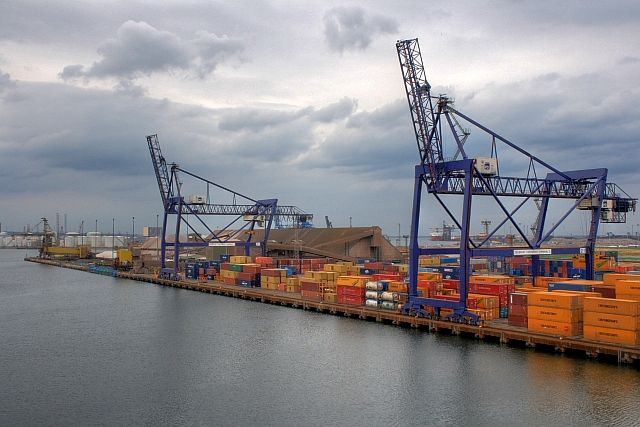
Over the past week, a regional story that has been bubbling away for years finally received some wider media attention with the report on the Teesworks project, one of the highest profile regeneration schemes in the UK.
The land at the centre of the row was once the home of Redcar’s steelworks, dubbed the largest brownfield site in Europe, but efforts to regenerate the site have been dogged by claims of corruption.
Although the review, ordered by levelling-up secretary Michael Gove, found no evidence of wrongdoing, it did make 28 recommendations, most of them centering around accountability and transparency.
“We have found no evidence to support allegations of corruption or illegality. However, there are issues of governance and transparency that need to be addressed and a number of decisions taken by the bodies involved do not meet the standards expected when managing public funds,” the review said.
It went on to describe the systems of governance at the network of institutions responsible for overseeing the delivery as insufficiently transparent to provide evidence of value for money, and warned of ‘a persisting theme or culture of excessive confidentiality’.
The report, which had been heavily delayed, has potentially serious implications not just for the Teesworks project but the Government’s wider ambitions for the Teesside Freeport of which Teesworks is a part.
Two contrasting attitudes have characterised the response to the report and to the issues around Freeports in general.
The first is reminiscent of the line the police sometimes used to come out with when confronted by nosey journalists or well-meaning innocent bystanders at the scenes of crimes or road traffic accidents: “Move along now, nothing to see here.”
This was, almost quite literally, the response of Middlesbrough South and East Cleveland MP Sir Simon Clarke — and Tees Valley Mayor Ben Houchen — when thousands of dead sea creatures washed up on the coastline between Redcar and Marske in March 2023.
When the Yorkshire Post attempted to pose perfectly legitimate questions as to whether the preparatory works on the Teesworks project might have caused the marine die-off, it found itself accused of ‘deeply irresponsible journalism’ by the two senior Tory politicians.
Some, however, have veered to the opposite extreme, viewing Freeports as part of some giant Brexiteer conspiracy to hand over large tracts of the country to private developers without the pesky EU poking its nose in, creating what in our own region would be some kind of Singapore-on-Tees.
Well, as is usually the case, the truth probably lies somewhere in between.

So to the facts. There are 12 Freeports in the UK, of which the Teesside project is the biggest, with Mayor Houchen claiming it will create 18,000 jobs in its first five years of operation.
As well as the Teesworks site, it includes the neighbouring chemical plant Wilton International — once the home of ICI — Teesside International Airport, the Ports of Middlesbrough and Hartlepool and Tees Dock, an area totalling 4,500 acres in all.
Among the tax benefits they offer to potential investors is enhanced capital allowances for plant and machinery, stamp duty and business rates relief, and zero rate secondary national insurance contributions for Freeport employees.
They also offer simplified customs procedures, with duty payments deferred and in some cases exempted, and ‘supportive’ local planning environments — bureaucratic shorthand for large-scale waiver of planning restrictions.
Some of these benefits also apply to the 74 Special Enterprise Zones established by the Government over the past 14 years, 48 of them in England, 18 in Scotland and eight in Wales.
The North East has two of these, but neither are discrete geographical entities, instead being made up of a series of widely-scattered enclaves linked more by industrial sector than by location.
So, for instance, the original North East Enterprise Zone contains three ‘clusters’ — the A19 Corridor, the Blyth Estuary, and the North Bank of the Tyne — which in turn contain a number of smaller sites.

The Blyth Valley SEZ, which focuses on supporting businesses linked to offshore energy and marine engineering, includes Bate and Wimbourne Quays, Dun Cow Quay and Commissioners Quay, while the North of Tyne zone, specialising in offshore wind and renewable energy, includes Swans Energy Park, Neptune Yard and the Port of Tyne.
A second North East Enterprise Zone was subsequently established focusing on business parks within the region.
They include Newcastle International Airport Business Park, Ramparts Business Park in Berwick, Ashwood Business Park in Ashington, the Jade Business Park in Seaham and the International Advanced Manufacturing Park located north of Sunderland’s Nissan car plant.
But attempts to draw parallels between Freeports and SEZs — for instance by claiming they are all part of the same radical post-Brexit privatisation agenda — ignore their very different histories.
Whilst Freeports are Rishi Sunak’s big wheeze, being announced as the customary ‘rabbit-out-of-the-hat’ at the conclusion of his Budget speech in 2021 when he was still Chancellor, SEZs are very much a pre-Brexit, George Osborne-era creation.
Some have also drawn a link between Freeports and so-called Charter Cities where private companies are effectively allowed to create micronations within a nation with different laws and tax rates, an analogy not helped by the fact that Charter Cities mean different things in different parts of the world.
In the US, for instance, it simply means a city that has chosen a novel type of local government including directly-elected mayors, for example Los Angeles, San Jose and Sacramento.
Under this definition, however, Teesside would already be a charter city, simply by virtue of having Ben Houchen as its leader.
The idea of charter cities in the purer sense of the term remains largely unexplored save for a few experimental initiatives in central America and sub-Saharan Africa — Silicon Zanzibar, a new tech hub located on the Tanzanian island, and Itana, a hub for Nigerian tech workers outside Lagos are two examples.
But although some of the more extravagant claims about the nature of Freeports can be safely discounted — for now, at least — the Teesworks report did highlight some genuine accountability issues.
The structure of governance of the various organisations with responsibility for the project is extremely opaque and to say it does not appear to have been constructed with transparency in mind would be something of an understatement.
At the head of it is Mayor Houchen, and he is joined on the board of the Tees Valley Combined Authority by the leaders of Darlington, Hartlepool, Middlesbrough, Redcar and Cleveland, and Stockton-on-Tees.

So far, so democratic, you might think. But the work on the Teesworks project is mainly devolved to the South Tees Development Corporation, whose 16 members include the Mayor and the leaders of Redcar and Cleveland and Middlesbrough, but a majority of private sector members.
Alongside this there is a Teesside Freeport board, also mainly made up of private sector representatives, while project delivery has effectively been sub-contracted to a Joint Venture Company, Teesworks Limited (TWL), between STDC and two local businessmen, Chris Musgrave and Martin Corney.
The reporting lines between these various bodies are unclear, the only common members of the TCVA, STDC and Freeport board being Mr Houchen and Redcar and Cleveland council leader Alec Brown.
Among the recommendations of last week’s review was that TVCA should review and revise the local governance framework ‘to ensure that greater degree of oversight over STDC and TWL is afforded to TVCA cabinet members and the Constituent Authority statutory officers’.
It also called on the TVCA Cabinet to ‘review its current delegations and directions to STDC to ensure it meets its statutory obligations, to enable value for money to be delivered and evidenced through effective scrutiny of significant decisions’ — effectively calling on the elected element of the governance structure to get a grip.
The future of these various bodies, and the projects they manage, will inevitably hinge on developments in national politics.
While Keir Starmer has made it clear we are not rejoining the EU any time soon, a Labour victory at the next general election is likely to see a move away from the agenda of conscious regulatory divergence from the EU with which the idea of Freeports is closely associated.
By contrast, a fifth successive Conservative triumph could potentially see the kind of Charter City-type ideas championed by former PM Liz Truss and others coming more explicitly to the fore.
Given the current unlikelihood of that scenario, however, some of the wilder conspiracy theories about Freeports and Special Enterprise Zones are likely to remain just that.

Gateshead College was awarded the highest grade of ‘strong’ by Ofsted for meeting employer skills needs, with the report acknowledging how embedded this approach is across the organisation.










